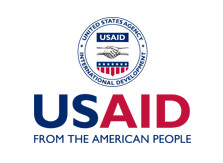|

“Hawking”, or street selling, is a common site in Nigeria where children, particularly girls, are required to contribute to the family income in lieu of attending school.
|
Success Story
How a little village went big on reform
September 2006 - Eighty-five kilometers from Nigeria's capital lies Dari, a rural settlement with a population of 5,000 located in Nasarawa State. Serving the community's children is an old school building, which, until quite recently, was fast becoming a haven of inactivity. In Dari, as in many other Nigerian communities, most parents encourage their daughters to seek menial jobs in the Federal Capital Territory. Pressured by their families, even children rely on menial jobs and street “hawking” to help supplement family incomes. This effectively deprives school-aged girls of attending school.
Despite the risks and hazards involved, menial “jobhunting” has become a popular way to improve living standards, and many girls look forward to their frequent trips to the capital to work for meager salaries. Ten-year-old Hadiza Abdullahi (not her real name) recounted her first experience: “I was forced to work under hard conditions, such as carrying heavy loads, washing, and other dirty jobs just to make money. Sometimes, I couldn't find a place to sleep.” Hadiza is just one of many girls who are looking for an improved quality of life. Another 10-year-old, Mairo Sule (not her real name), said: “I was involved in an accident. I almost died, and there was nobody to take care of me. There was not enough food, and yet I couldn't spend the little money I had made because I had to bring good money back home.”
|
|
“If a stranger enters your house and tells you your house is dirty, it does not mean he dislikes you; he only wants you to make amends.” | |
The migratory habits of these children affected enrollment and retention of pupils at the community school in Dari. Compounding the problem was the lack of a platform for community members to discuss and resolve common issues. Recognizing this gap, the USAID-funded Community Participation for Action in the Social Sector (COMPASS) Project helped to establish a Community Coalition including teachers, parents, farmers, traders, and service providers to identify and resolve health and education problems facing the Dari community. COMPASS utilized a participatory approach which encouraged Coalition members to engage actively in developing and implementing solutions, which often included fund-raising or generating volunteer labor. |
As eight-year-old Rakiya Haruna (not her real name) prepared to begin hawking with her peers in Nigeria's capital, news reached her that her fate had changed. During a Community Coalition meeting, members had discussed the problem of low school enrollment and the trend in migration, as well as general cleanup of the community. As a result, parents resolved to send their children to school, and forbade menial jobs during school hours, encouraging others in the community to follow their example. In addition, community members agreed to hold cleanup exercises every month. Now the community environment is improved, and members are even taking turns to clean the school. Also, teachers from Dari Science Primary School are improving their teaching skills through the COMPASS teacher-training program and an innovating program of interactive radio instruction.
School enrollment in Dari has almost doubled, increasing from 376 to 687 pupils, almost half of which are girls. Citizens of Dari are pleased with the changes they have created for themselves and their children. As community leader Wakayi Bawa says, “If a stranger enters your house and tells you your house is dirty, it does not mean he dislikes you; he only wants you to make amends.”
|
